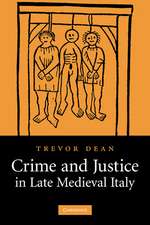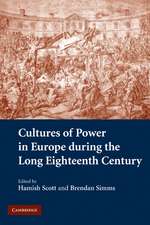The Green and the Brown: A History of Conservation in Nazi Germany: Studies in Environment and History
Autor Frank Uekoetteren Limba Engleză Paperback – 13 aug 2006
| Toate formatele și edițiile | Preț | Express |
|---|---|---|
| Paperback (1) | 204.48 lei 6-8 săpt. | |
| Cambridge University Press – 13 aug 2006 | 204.48 lei 6-8 săpt. | |
| Hardback (1) | 551.58 lei 6-8 săpt. | |
| Cambridge University Press – 13 aug 2006 | 551.58 lei 6-8 săpt. |
Din seria Studies in Environment and History
-
 Preț: 137.74 lei
Preț: 137.74 lei -
 Preț: 188.70 lei
Preț: 188.70 lei -
 Preț: 234.83 lei
Preț: 234.83 lei -
 Preț: 156.89 lei
Preț: 156.89 lei -
 Preț: 204.55 lei
Preț: 204.55 lei -
 Preț: 147.64 lei
Preț: 147.64 lei -
 Preț: 243.02 lei
Preț: 243.02 lei -
 Preț: 201.67 lei
Preț: 201.67 lei - 14%
 Preț: 771.56 lei
Preț: 771.56 lei -
 Preț: 231.54 lei
Preț: 231.54 lei -
 Preț: 191.12 lei
Preț: 191.12 lei -
 Preț: 239.72 lei
Preț: 239.72 lei -
 Preț: 231.59 lei
Preț: 231.59 lei -
 Preț: 200.99 lei
Preț: 200.99 lei -
 Preț: 206.52 lei
Preț: 206.52 lei -
 Preț: 199.05 lei
Preț: 199.05 lei -
 Preț: 431.15 lei
Preț: 431.15 lei -
 Preț: 322.04 lei
Preț: 322.04 lei -
 Preț: 299.23 lei
Preț: 299.23 lei -
 Preț: 332.81 lei
Preț: 332.81 lei -
 Preț: 239.55 lei
Preț: 239.55 lei -
 Preț: 225.79 lei
Preț: 225.79 lei -
 Preț: 285.93 lei
Preț: 285.93 lei -
 Preț: 270.25 lei
Preț: 270.25 lei -
 Preț: 275.85 lei
Preț: 275.85 lei -
 Preț: 323.05 lei
Preț: 323.05 lei -
 Preț: 208.68 lei
Preț: 208.68 lei - 11%
 Preț: 432.64 lei
Preț: 432.64 lei -
 Preț: 252.69 lei
Preț: 252.69 lei -
 Preț: 278.72 lei
Preț: 278.72 lei -
 Preț: 272.97 lei
Preț: 272.97 lei - 11%
 Preț: 528.82 lei
Preț: 528.82 lei - 14%
 Preț: 756.70 lei
Preț: 756.70 lei -
 Preț: 264.09 lei
Preț: 264.09 lei -
 Preț: 440.76 lei
Preț: 440.76 lei
Preț: 204.48 lei
Nou
Puncte Express: 307
Preț estimativ în valută:
39.13€ • 40.96$ • 32.38£
39.13€ • 40.96$ • 32.38£
Carte tipărită la comandă
Livrare economică 05-19 aprilie
Preluare comenzi: 021 569.72.76
Specificații
ISBN-13: 9780521612777
ISBN-10: 0521612772
Pagini: 248
Dimensiuni: 152 x 229 x 14 mm
Greutate: 0.39 kg
Editura: Cambridge University Press
Colecția Cambridge University Press
Seria Studies in Environment and History
Locul publicării:New York, United States
ISBN-10: 0521612772
Pagini: 248
Dimensiuni: 152 x 229 x 14 mm
Greutate: 0.39 kg
Editura: Cambridge University Press
Colecția Cambridge University Press
Seria Studies in Environment and History
Locul publicării:New York, United States
Cuprins
1. The Nazis and the environment: a relevant topic?; 2. Ideas: diverse roots and a common cause; 3. Institutions: working towards the Führer; 4. Conservation at work: four case studies; 5. On the paper trail: the everyday business of conservation; 6. Changes in the land; 7. Continuity and silence: conservation after 1945; 8. Lessons.
Recenzii
"This is a book we very much need. Frank Uekoetter brings together a wealth of material and original argument in accessible form. His examples are vivid, and he effectively challenges many misconceptions about nature conservation in the Third Reich. Wide-ranging in scope and clear-eyed in its judgments, this thoughtful and elegantly constructed book deserves a wide readership."
-David Blackbourn, Harvard University
"Frank Uekötter's engaging and nuanced study of conservation under the Nazi regime demolishes recent claims that contemporary environmentalism in Germany can be traced back to the Third Reich. Although conservationists willingly cooperated with the Nazi state and appealed to leading Nazis, such as Hermann Göring and Heinrich Himmler, to pursue their goals, neither conservationist ideology nor environmental legislation held much influence in a regime hell-bent on rearmament and Lebensraum. By highlighting conservationists' tactical accommodations to Nazism and their unwillingness to confront the enormity of Nazi racism and imperialism, however, Uekötter underscores the real lesson for contemporary environmentalists: the moral and political success of their goals depends on the care and clear-sightedness with which they build political alliances."
-Shelley Baranowski, University of Akron
"Frank Uekoetter's The Green and the Brown is the latest and, in many ways, the best contribution to this burgeoning field. ... Well researched and cogently argued, this book should be read by environmental historians and Third Reich historians alike, and most especially by scholars in search of new and innovative research projects in these fields."
-Mark Cioc, Central European History
"The Green and the Brown is a compelling overview of the complex and contradictory history of German conservationist movements under the Nazi regime.... an important and accessible contribution to scholarship on Nazi Germany and warrants a wide readership."
-Environment & History
"Frank Uekoetter demonstrates... why a study of nature protection in the Third Reich remains vital. Drawing upon a variety of national, provincial, and city archives, he shows that nature protectionists were opportunists, attracted mainly to the Nazi regime because it seemed to offer more systematic preservation of natural areas.... Dr. Uekoetter must be given credit for writing an accessible and revealing work on a provocative topic."
-Charles Closmann, Department of History, University of North Florida, H-Environment
"This concise, well-written book would serve as a useful introduction to the topic for both graduate and undergraduate students..."
-Jeffrey K. Wilson, Univeristy of New Orleans, German Studies Review
"[T]his book offers the most specifically focused analysis of the cooperation between the various segments of the conservation community and the National Socialist hierarchy, along with the serious implications of this union, implications that extend far beyond ecology. In this volume, Uekoetter draws effectively on a wealth of primary and secondary sources to provide a gestalt of the conservation movement's relationship to Nazism prior to and during the war, as well as its perception of its own behavior in the conflict's aftermath... [His] volume argues for and provides a nuanced exploration of the important part played by the conservation movement in the history of Nazi Germany."
-H-German
"Uekoetter's work offers an important and well-documented corrective to recent discussions that suggest that there was a "green wing" in the Nazi Party...Uekoetter's reserch has relevance for debates within community advocacy groups and social movements as well as within academia"
-Canadian Journal of History
"...a much-needed synthesis of the history and historiography of Nazi conservation, a subject which has received growing scholarly attention in the past decade." -Thomas Lekan, European History Quarterly
-David Blackbourn, Harvard University
"Frank Uekötter's engaging and nuanced study of conservation under the Nazi regime demolishes recent claims that contemporary environmentalism in Germany can be traced back to the Third Reich. Although conservationists willingly cooperated with the Nazi state and appealed to leading Nazis, such as Hermann Göring and Heinrich Himmler, to pursue their goals, neither conservationist ideology nor environmental legislation held much influence in a regime hell-bent on rearmament and Lebensraum. By highlighting conservationists' tactical accommodations to Nazism and their unwillingness to confront the enormity of Nazi racism and imperialism, however, Uekötter underscores the real lesson for contemporary environmentalists: the moral and political success of their goals depends on the care and clear-sightedness with which they build political alliances."
-Shelley Baranowski, University of Akron
"Frank Uekoetter's The Green and the Brown is the latest and, in many ways, the best contribution to this burgeoning field. ... Well researched and cogently argued, this book should be read by environmental historians and Third Reich historians alike, and most especially by scholars in search of new and innovative research projects in these fields."
-Mark Cioc, Central European History
"The Green and the Brown is a compelling overview of the complex and contradictory history of German conservationist movements under the Nazi regime.... an important and accessible contribution to scholarship on Nazi Germany and warrants a wide readership."
-Environment & History
"Frank Uekoetter demonstrates... why a study of nature protection in the Third Reich remains vital. Drawing upon a variety of national, provincial, and city archives, he shows that nature protectionists were opportunists, attracted mainly to the Nazi regime because it seemed to offer more systematic preservation of natural areas.... Dr. Uekoetter must be given credit for writing an accessible and revealing work on a provocative topic."
-Charles Closmann, Department of History, University of North Florida, H-Environment
"This concise, well-written book would serve as a useful introduction to the topic for both graduate and undergraduate students..."
-Jeffrey K. Wilson, Univeristy of New Orleans, German Studies Review
"[T]his book offers the most specifically focused analysis of the cooperation between the various segments of the conservation community and the National Socialist hierarchy, along with the serious implications of this union, implications that extend far beyond ecology. In this volume, Uekoetter draws effectively on a wealth of primary and secondary sources to provide a gestalt of the conservation movement's relationship to Nazism prior to and during the war, as well as its perception of its own behavior in the conflict's aftermath... [His] volume argues for and provides a nuanced exploration of the important part played by the conservation movement in the history of Nazi Germany."
-H-German
"Uekoetter's work offers an important and well-documented corrective to recent discussions that suggest that there was a "green wing" in the Nazi Party...Uekoetter's reserch has relevance for debates within community advocacy groups and social movements as well as within academia"
-Canadian Journal of History
"...a much-needed synthesis of the history and historiography of Nazi conservation, a subject which has received growing scholarly attention in the past decade." -Thomas Lekan, European History Quarterly
Notă biografică
Descriere
This study provides the first comprehensive discussion of conservation in Nazi Germany.













